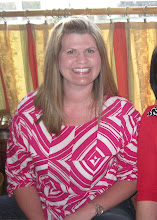Saturday, November 21, 2009
WWII in HD
The History Channel just finished premiering the series, WWII in HD. This series features rare footage from WWII shot in color. The footage was found during a two-year search through archives and basements around the world. WWII has always fascinated me. I'd describe myself as a huge WWII buff. Because of this, I've seen and read a lot on WWII. I wondered if WWII in HD would be all that different from the many other WWII documentaries. Let me tell you, it is. I was awestruck while watching it, literally gasping at some parts. It's amazing how different it is to see something in color. Explosions, the Pacific Ocean, Hitler - they all look so different. It was like seeing some things for the first time. The color footage was awesome, but so are the stories the series covers. The war is told through the eyes of 12 different Americans, including a female Army nurse, an African American Tuskegee Airman, a Jewish Austrian who immigrated just before the war, and a Japanese American soldier. If you're even slightly interested in WWII, this is the series to see.
Wednesday, November 11, 2009
So, When did French Kissing Start?
Students: "What? They couldn't be alone? What about making out?"
Me: "That would have been considered inappropriate. In fact, it would have been fairly scandalous."
Students: "So, not even kissing?"
Me: "No. Many people wouldn't have kissed until their wedding day."
Student: "So, when did french kissing start? Did it start in France?"
At this point I was dying. The students were so sincere in their questions and I was trying to be good with my answers, but I lost it and burst out laughing. Luckily, the bell was about to ring and I put an end to the inquiry by having them clean up.
Friday, November 06, 2009
The Book Thief

So, I finally finished The Book Thief by Markus Zusak. It has been one of the hardest books to read. I had a hard time getting use to the narration (the narrator is Death) and some parts were so very tedious. Despite these difficulties, this book moved me more than any other work of fiction. I know, it's weird. I didn't particularly enjoy reading this book, yet I loved it. Again, a weird contradiction. So, why did I love The Book Thief? The book talks about the power of words - I love that. Unfortunately, Zusak isn't very consistent with his own words - some sections of The Book Thief are masterfully written, while others are a rambling mess. Here are a few I consider masterful:
She was the book thief without the words. Trust me, though, the words were on their way, and when they arrived, Liesel would hold them in her hands like the clouds, and she would wring them out like rain. (page 80)
People may tell you that Nazi Germany was built on anti-Semitism, a somewhat overzealous leader, and a nation of hate-fed bigots, but it would all have come to nothing had the Germans not loved one particular activity: To burn. The Germans loved to burn things. Shops, synagogues, Reichstags, houses, personal items, slain people, and of course, books. (page 84)
There was once a strange, small man. He decided three important details about his life: 1. He would part his hair from the opposite side to everyone else. 2. He would make himself a small, strange mustache. 3. He would one day rule the world. The young man wandered around for quite some time, thinking, planning, and figuring out exactly how to make the world his. Then one day, out of nowhere, it struck him - the perfect plan. He'd seen a mother walking with her child. At one point, she admonished the small boy, until finally he began to cry. Within a few minutes, she spoke very softly to him, after which he was soothed and even smiled. The young man rushed to the woman and embraced her. "Words!" he grinned. "What?" But there was no reply. He was already gone. Yes, the Fuhrer decided that he would rule the world with words. "I will never fire a gun," he devised. "I will not have to." His first plan of attack was to plant the words in as many areas of his homeland as possible. He planted them day and night, and cultivated them. He watched them grow, until eventually, great forests of words had risen through Germany . . . . It was a nation of farmed thoughts. (page 445)
She tore a page from the book and ripped it in half. Then a chapter. Soon, there was nothing but scraps of words littered between her legs and all around her. The words. Why did they have to exist? Without them there wouldn't be any of this. Without words, the Fuhrer was nothing. (page 521)







